ON MONDAY, the racing and mainstream media descended on Willie Mullins’ headquarters in Closutton with almost the same frenzy as the rest of the country was hunting down a loaf of bread.
Just a few miles over the road, a trainer who knew Cheltenham triumph in a different era was going about his business in solitude, his focus now purely on survival.
The next day, as flecks of snow began to fall in Aughabeg, outside Bagenalstown, Tom Foley greeted a single scruff from The Irish Field with good humour, perhaps chuckling at the memory of a time when journalists getting lost attempting to locate his premises and arriving late was a regular occurrence.
He certainly was not getting exercised by Storm Emma or the Siberian beast. At 71, rising 72, there is very little he hasn’t seen.
Foley has known glory and seen it fade away. He no longer concentrates on training racehorses to make ends meet and is fortunate that his four children are fulcrums of the operation as he could not afford staff with the same expertise.
It is his fervent belief that the authorities could improve his lot and that of those like him, in the process, arrest the alarming slide in licence-holders, and isn’t sure whether they don’t care or are just doing a Pilate on it.
Meanwhile, he is carrying on his own private battle with prostate cancer. Everything has context but he is telling you in a matter-of-fact fashion, without drama. People in his circle know but he would hate to make a big deal about it because trials are not unique to him.
Anyway, he feels good. He’s taking his medication, going for tests every three months or so. He is out at 6am and in after dark. The work has to be done.
Tom Foley still loves this game, even if it isn’t the one he used to know.
DANOLI DAYS
He lives in the house he grew up in and for the first 40 years of his life, Tom Foley knew nothing but farming on 60 acres of land at the foot of the Blackstairs. He was still new to the game when he managed to pick up Danoli at Goffs from Willie Austin for 7,000 guineas, having been dispatched by Dan O’Neill initially to buy a filly.
O’Neill used his name and that of his daughter Olivia to christen his new purchase, a subsequent winner of 17 races including the Sun Alliance Hurdle, the Martell Hurdle twice, the Hennessy Gold Cup and two other Grade 1s.
He was the People’s Champion, a combination of his tigerish spirit and Foley’s natural, unaffected way endearing him to the public. The septuagenarian felt the warmth of that goodwill at Punchestown just last January, as he returned to the winner’s enclosure after Goaheadmakemyday’s win. He will always be remembered.
Back then, the ovations were regular. Danoli inspired emotion from the time he finished second in the Irish Champion Hurdle on only his fourth ever start over obstacles. There wasn’t a dry eye in the house when he finished a thre equarters of a length third in the same race in 1996, his first run since suffering a career-threatening injury while winning his second Martell Hurdle at Aintree 288 days earlier. It was the same when he beat Jodami and Imperial Call in the Hennessy 13 months later.
COMPETITIVE SPIRIT
There is no fear of Foley ever getting tired of talking about those times. Fair enough, it reminds him of what he doesn’t have now and makes him wonder what prize money that could be accumulated if Danoli were around now. Still, he wouldn’t trade any of it.
“He loved racing,” relates a grinning Foley. “Unbelievable. If you only walked him half-way up along the lane, he’d have to get out in front. He loved competing. The biggest problem we had that time was getting horses to work with him. None of them wanted to take him on.
“The first day he went to Naas (winning his bumper at 16/1), and I don’t ever gamble, but that day I was after getting a few bob in cash and I says ‘I’m going to put it on this fella.’ The whole family went up that day. We all chickened out except (my daughter) Goretti, who was only five or six at the time. She had a pound on him!
“The biggest bet I ever had was £50. We went to Liverpool and (Dermot) Weld’s horse (Fortune And Fame) came into the stable yard that morning. The minute Danoli seen him he put his ears back and he went around as much to say ‘What are you doing here?’ I rang home here for (my wife) Goretti to go into town and put £50 on him.”
He dotted up by eight lengths from Mole Board, Fortune And Fame, Champion Hurdle winner Flakey Dove and former Triumph Hurdle winner Shawiya.
Being so new to it all had its benefits when they went to Cheltenham first in 1994.
“We were kind of a bit stupid because we didn’t realise it! We were going around at Cheltenham the same as if it was another ordinary race, like we were at a point-to-point.
Tuesday night was the first time. The television came on that night and they says ‘The first day of Cheltenham is over and Ireland haven’t a winner but Danoli is there tomorrow.’ That was the first time we felt it. We knew from then this was an Irish-English competition. We walked into the lion’s den that time knowing nothing.”

Cheltenham 1994. Danoli and Charlie Swan are led in byowner Danny O'Neill after their Sun Alliance hurdle win.
He always had confidence in his star but was racked with tension when they returned to race after such a serious injury.
“I’ll tell you the truth of it now. We didn’t even school him over hurdles. I said when we were going up to Leopardstown, he’s not going to get a hard race and he won’t be allowed to be hit. We said we’d bring him down and show him the hurdle, just to let him have a look at it before we’d go to the parade ring.
“We were about 15 yards from the hurdle and he fired his head up into the sky and off he took and on into the parade ring. He wouldn’t wait!
“That was the first day I ever felt pressure. I sat down in the stand, pure weak from worrying. If we had to set out and run the horse the way we should have, he’d have won it. He was only bet a small bit and Tommy Treacy was afraid to hit him. He was pure determined and if he’d another 10 yards he’d have been up. But we couldn’t have been any more happier.
“That horse won a Hennessy and it’s hard to say it, but he won on three legs, even though there was four Gold Cup horses in it. We had to stop working him. He’d go back up there to the stable and he’d lie down in it and roar with the pain in his leg. The next morning he’d be up there at the door lipping to go out with the others. That was just the way he was.”

RIGHT: Danoli jumps the last ahead of Jodami in the Hennessy Gold Cup at Leopardstown
THE LIMELIGHT
Danoli rocketed Foley into the limelight but not everyone was impressed. He recalls being jeered by some punters in Punchestown when coming back in after winning the bumper at the festival, having given Cheltenham a miss.
“I just said to them ‘When Cheltenham will be over, we’ll have a horse in the whole of his health and he’ll be there for next year’ and that was the way I looked at it. There aren’t too many that won the bumper in Cheltenham that went on and done things after. It took a lot out of them.
“He was a big horse. He was over 16-2, a big, strong horse and we were always worried about the way he’d travel. So when we did go, we decided to fly him over and back and it was all only going to be a few hours.”
It was Foley’s first time out of the country too.
“I’d be a real bad traveller one way or the other and from worrying about the horse, I was grand until we landed. Then I got sick after!”
There is a hint of what-might-have-been about Danoli because of the injury, suffered when he was still a novice. Foley is convinced that we never saw the best of him.
“He’d have won a Gold Cup, I’ve no doubt whatsoever, because even look at what he did in Leopardstown, to beat four Gold Cup horses on three legs. Definitely he’d have done it. He went to Cheltenham that year and the ground was way too hard and he felt every step of the way and he was in fierce pain. We’d to get the vets to inject him when we went back to the stable to ease the pain.”
NOTHING SPECIAL
In the end, they retired him to save him from himself. Royal Paradise, The Subbie, Go Now and the ill-fated Moon Man were other top-flight horses in Aughabeg, then and subsequently, but the days of Grade 1 winners are ancient history. Goaheadmakemyday was Foley’s second winner of the season. That doubles last year’s tally although he did have another on the flat in 2017.
Whereas he would have once had more than 30 inmates and a waiting list, he now has around 12, and none of those are special.
“Now it’s an awful lot harder because you can’t go up to the sales and buy a horse. That time, if a lad said to you ‘What would a horse cost?’ you used to tell him ‘If you’ve 10 grand you’ll definitely buy a nice horse.’ Now you’d have no use in thinking of going up. Unless you’ve €50,000 now, you’re at nothing. If you’d €15,000 you’d come home with a horse you didn’t want.
“Point-to-point horses is costing €150,000. It’s different now. It’s a business. And it’s not that it has all changed for the better. It hasn’t. Racing is pretty low at the present time.
“If you went racing that time, you had seven different owners and seven different trainers that would win races. Very seldom you’d have lads do a double in the big races and the crowd got behind everybody.
“Now people are saying ‘What’s the point?’ You can’t back Willie Mullins’ horses and you can’t back Gordon Elliott’s. They’re 9/10 or whatever. I see the boys in Bagenalstown, they’ll go into the betting office if there’s an English race on. The minute it’s over, they go up to the pub and will be back when the next English race is on. They wouldn’t bother with the Irish race. There’s no point.”
CLOSE TO GIVING UP
Recent statistics released by the IHRB reveal that the number of trainers holding NH licences are below 100 for the first time since 2008, the drop to 93 a decrease of 10.5% Foley admits he’s hanging on.
“I was very near giving it up this year. There’s no enjoyment in it now. No enjoyment whatsoever. Whereas that time you’d love to go. I often drew up to Listowel for the week, up and down every day and it wouldn’t cost you a thought. Now it’s a headache because you know in your heart and soul your chances of winning is fairly limited.”
So why is he still doing it?
“It’s probably like the drink. When you get going at it, it’s hard to get away from it. And to change now, it’s probably gone too late for me. And I do like it still. I’d love to have a couple of good horses and a couple of good owners but the good owners are getting scarce.
“The small owners. The big owners, all they ever do is put pressure on you. You’d go out and win a good maiden hurdle somewhere and the first thing they’ll say is ‘Oh wait ‘til we win a decent race’ and that is the difference.”
He also has Adi, Pat, Sharon and Goretti involved. It wouldn’t be possible without them.
“If you’re pulling the plug, you’re pulling the plug on the whole lot. They stuck it out through thick and thin.”
They take in mares to foal now and do some breaking and pre-training.
“There’s probably more in that now than there is in the other and there’s less pressure. We have the set up to do it.”
UNLIKELY DREAM
He is succinct about the cancer.
“We were under the weather a bit for a while but sure who hasn’t something? We don’t say nothing about it because people have their own thing. As long as we can stay going, we don’t care.”
You could never tell. The life has clearly suited him. He is still grinding away, smiling at every opportunity, a gentleman as ever.
The dream of finding another good one remains but is unlikely to be realised.
“It’s nearly the same as dreaming you’d win the Lotto. The chances are getting smaller and smaller because the owners are not there. We had some of the best small owners going. They just weren’t able to compete and they’d be mad to get back into it but if you’d say something to them they’d say ‘What’s the point?
“You can’t take on Gigginstown or Ricci.’ You’re going out there with a horse you’ve paid 15 or 20,000 for, to take on a €200,000 or €300,000 horse and you can’t do that… And I really think myself that Horse Racing Ireland is doing nothing to keep the small man in it.”
ACTION
What should they be doing?
“Put on more races, say 80-95, that Willie or O’Leary wouldn’t have any horses in it. Have two or three of them in a meeting. Or even have a whole meeting. And they’d be really good betting races. And give a selection of races from two miles up to three miles. Give lads a chance that way.
“The likes of the Turf Club or HRI should be looking after the small fella and giving him a chance and putting on the races. Because if you have a horse in that bracket, there’s nine chances out of 10 you’ll get balloted out and you won’t get in. You’re keeping a horse there, and you’re after saying to an owner ‘He’ll run such a time’ and the next thing, he can’t get in and there’ll be ne’er another race for I don’t know how long.
“They don’t ever think when they’re putting out races to give different lads a chance. They’re grand when they come down to Grade 1 races and that.”
A FAIR CHANCE
He agrees with Tony Mullins’ suggestion that a limit should be put on the number of horses from any owner or trainer in a race.
“I’m not saying there’s not any of us wouldn’t do it if we could, and people will say we’re getting a lot out of Gigginstown and Ricci and all, but what I’m saying is that in the long run it’s not good for racing. I don’t think they should be allowed have that many horses in it.
“Give everybody a chance. If you have a horse and he’s handicapped nicely, in the high 130s or something like that, you’d have no chance of getting in.
“There’s only one people can put that right and that’s HRI but they’re not doing it. They’re not putting on the races for the small man. They could run a whole meeting if they wanted for horses rated from 85 to 102 and that would cut out all the bigger lads, who’d have ne’er a horse for the likes of that. It would give you a great chance.”
So he has to do what he can in the current environment.
“I’ll keep going that piece longer, as long as I can and we’ll see what will happen. I’d like to be able to keep my head above water. If I could, I’d be quite happy.”
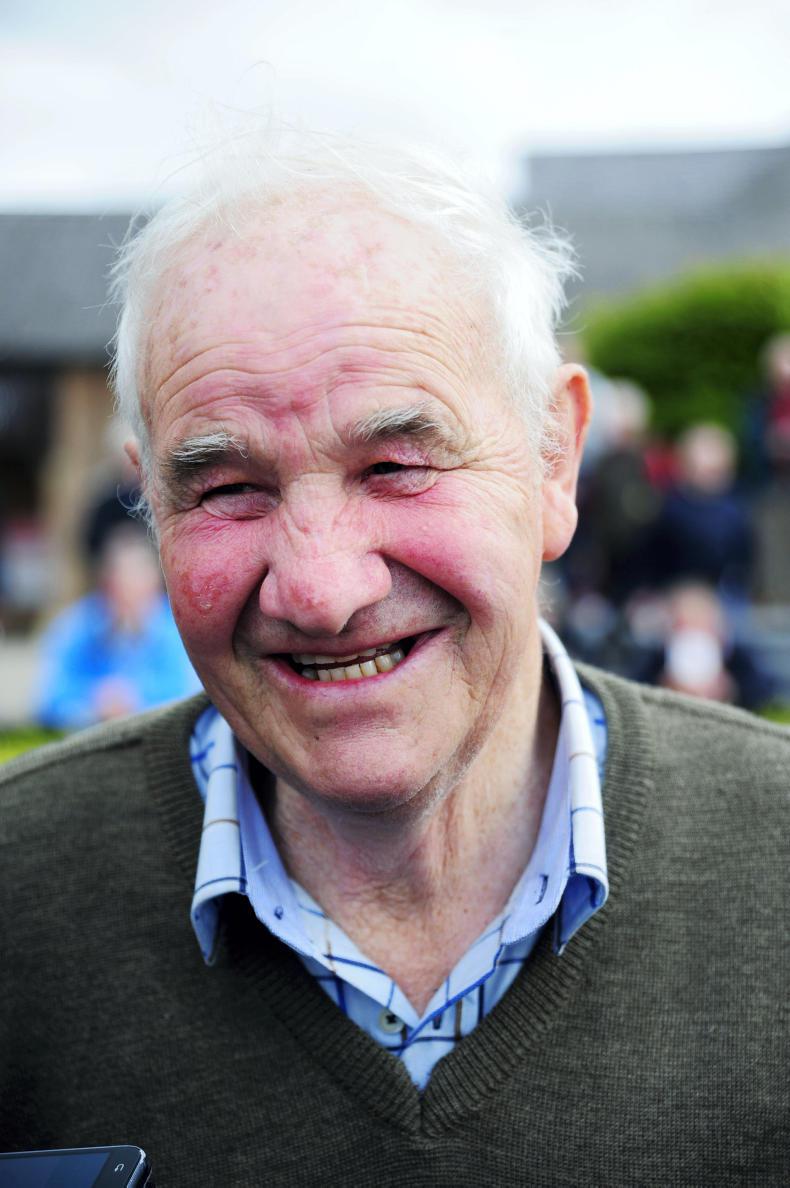

 This is a subscriber-only article
This is a subscriber-only article
 It looks like you're browsing in private mode
It looks like you're browsing in private mode





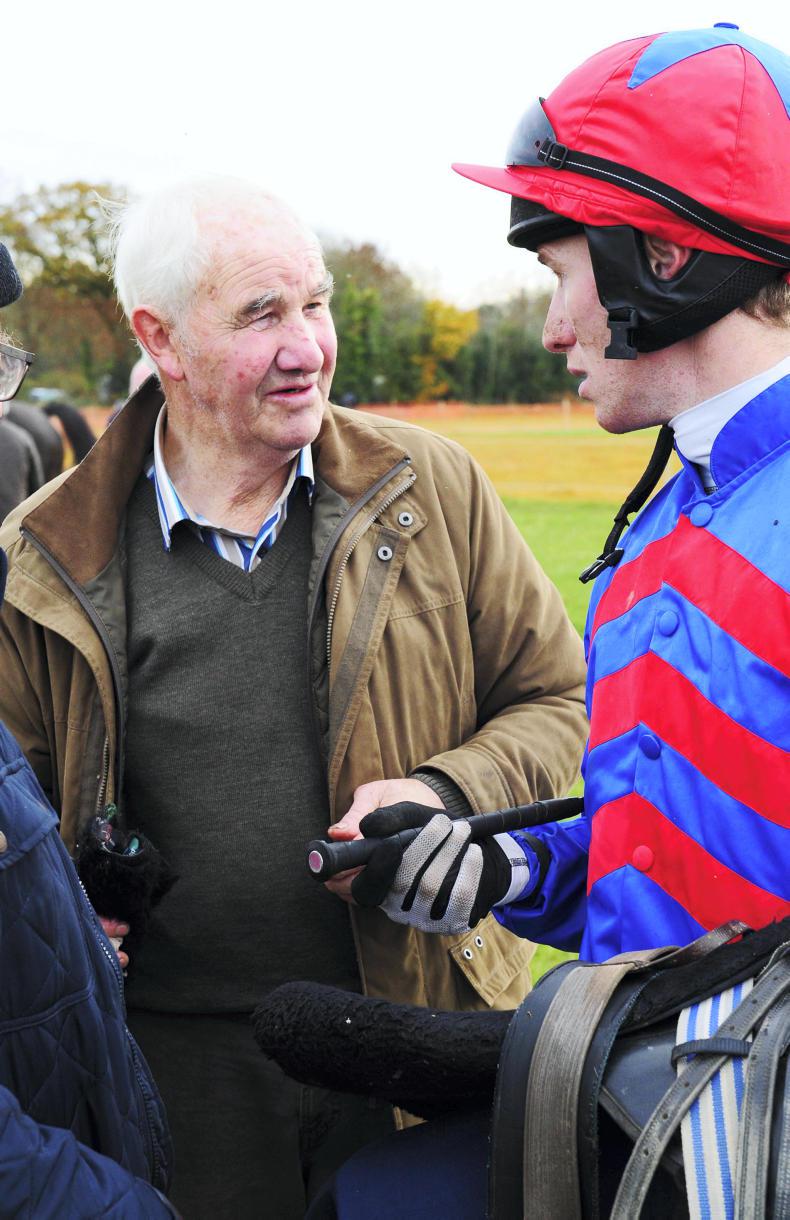
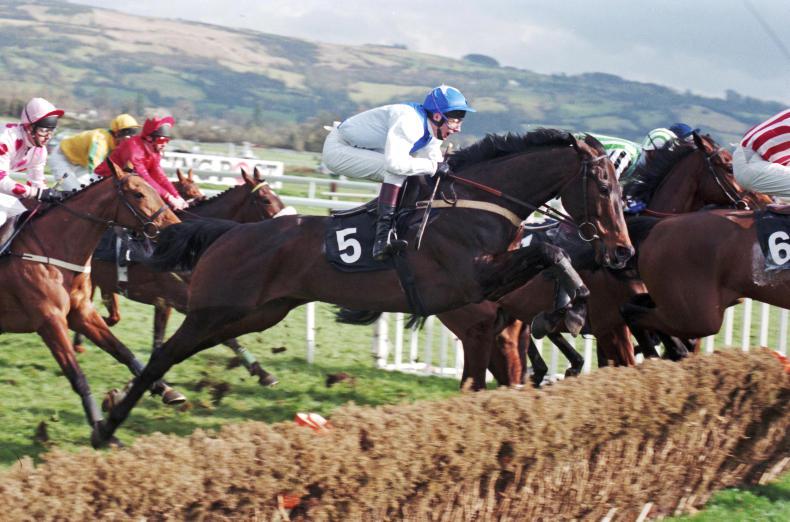
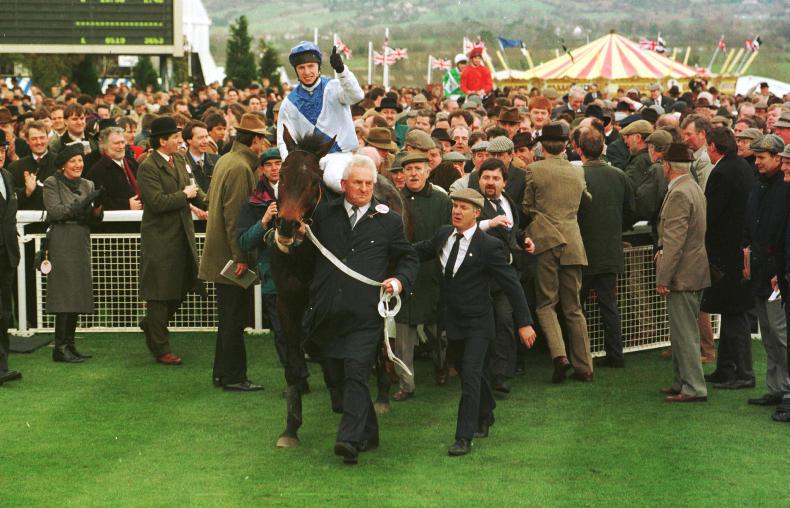
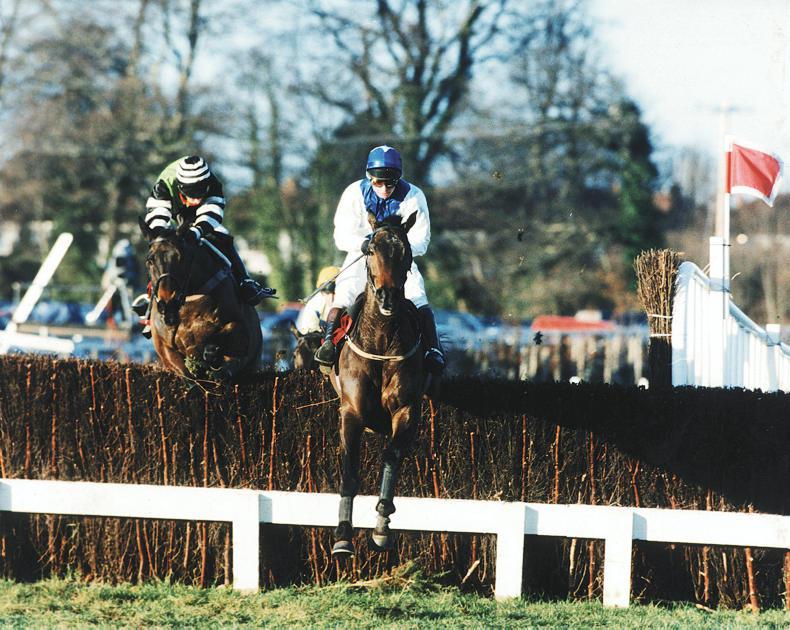

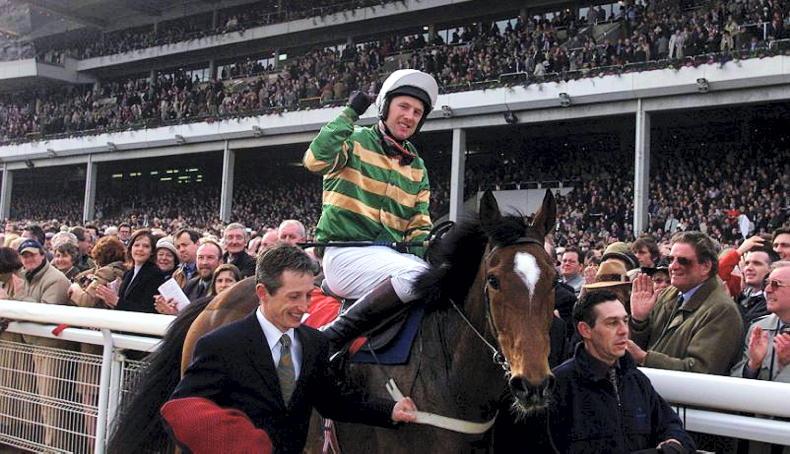


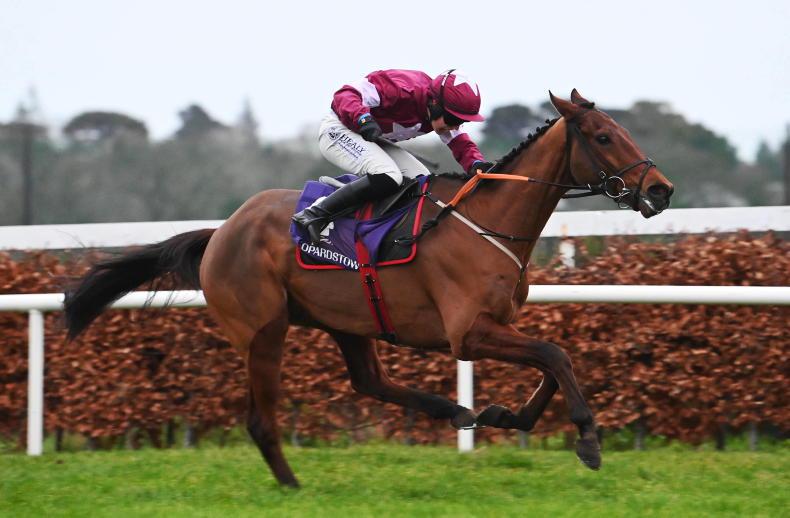
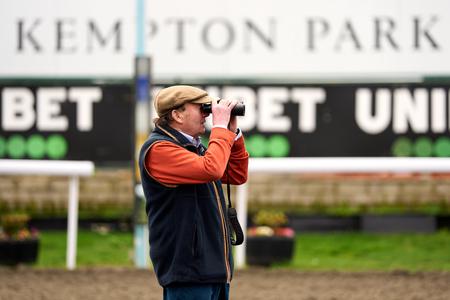
SHARING OPTIONS: